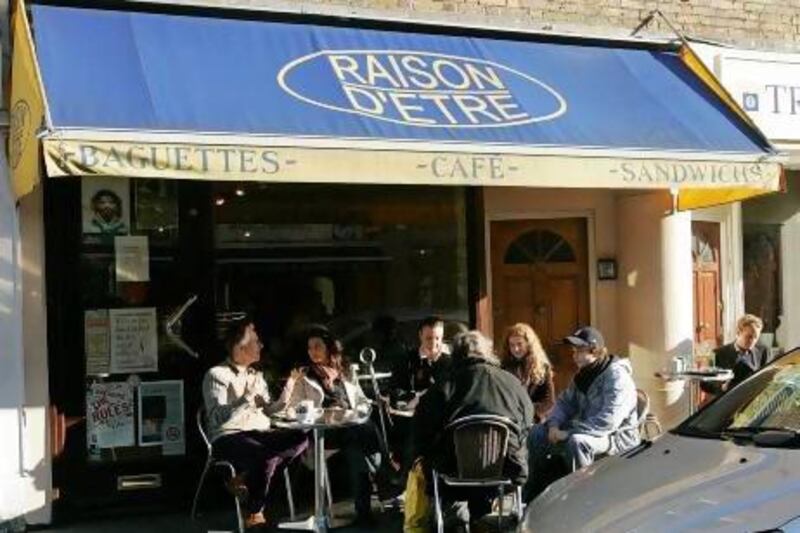So many French people have made their homes in London that the British capital is often referred to as France's sixth largest city.
In the past, the lure has been to ordinary and, typically, young people looking for greater employment opportunities or wanting to experience what the French call the "Anglo-Saxon" culture and lifestyle.
To that outward flow of people - up to 400,000 French citizens are now estimated to live in London - has been added other kinds of citizen of the republic, those individuals of substance alarmed by the tax-and-spend policies of the Socialist president, François Hollande, and his like-minded government.
Britain is not the only location in this French diaspora. Not all have heeded the mischievous promise by the British prime minister, David Cameron, to roll out the red carpet of welcome to refugees from French taxes. Switzerland, Liechtenstein and, recently, Belgium and Russia have also featured in the process.
And it has become routine for anyone making a move out of France to stress that fiscal considerations are not the real motivation.
But whether the individual looking beyond French frontiers is a famous actor, and they come no more famous than Gérard Depardieu, or business tycoon, as in the case of Bernard Arnault, the super-rich head of the LVMH luxury goods empire, the protestations sometimes fall on deaf ears back home.
Figures quoted with more than a hint of glee by Eurosceptic and right-wing commentators in Britain demonstrate a sharp rise in the outflow of capital from France in the months of October and November, coinciding with fierce debate on Mr Hollande's plans including bitter opposition from business leaders.
The conservative London newspaper, The Daily Telegraph, cited Banque de France data showing a net loss of funds during those two months of €53 billion (Dh263.2bn). It said a key gauge of French money supply known as "six-month real M1" had been contracting at an accelerating rate since Mr Hollande was elected to the Élysée last May, taking it to levels unknown since the global economic crisis first took hold in 2008.
Simon Ward, the chief economist at Henderson Global Investors, told the newspaper: "Taken together, it is clear that there has been a major loss of confidence and funds have been pulling money out of the country."
Mr Hollande's path to the fairer society he vows to create has been obstructed by difficulties throughout his short period, so far, in power.
In December, France's highest court ruled his plan for a 75 per cent tax on all income above €1 million a year to be unconstitutional.
Although the levy would affect few people - an estimated 1,500 - and therefore yield little revenue, it was a hugely symbolic feature of the Socialist manifesto.
Mr Hollande's government promises to find a way around the ruling, by submitting new proposals.
But it was a major setback at a time when the president's public rating was unusually low for a head of state so newly installed in office.
The socialist assault on the better-off was inspired in part by a desire to reassure people struggling with job insecurity or actual unemployment, and dwindling spending power, that if the government could not redistribute wealth, it could at least redistribute pain.
As well as the 75 per cent supertax plan, intended to operate for two years if a refinement acceptable to the courts is found, Mr Hollande's government is also seeking to claw more money from capital gains taxes and higher inheritance duties.
When Depardieu was revealed first to have bought a house just across the border in Belgium, after which he also applied for and was granted Russian citizenship, he claimed to have acted for reasons "numerous and private".
Few in France believe taxation issues were not among them; the actor himself says he has contributed some €145m in taxes over a film career spanning nearly half a century.
But what is as interesting as Depardieu's thinking and public utterances is the reaction of the French. Despite attempts by the Hollande government to demonise the star's gestures as unpatriotic and even "pathetic", a poll for the conservative newspaper Le Figaro found that 40 per cent "understood" the actor's position and a majority refused to condemn him.
And while there was overwhelming support for the idea that the richest should bear their share of the burden of shouldering national economic crisis, more than half also felt it was understandable that some should decide to flee France.
Le Figaro acknowledged the ambiguity of the responses which, it said, reflected a cross between "the spirit of Robin Hood and a tradition of hostility towards the fiscal system".
When the limelight-loving London mayor, Boris Johnson, repeated Mr Cameron's earlier invitation, telling would-be French tax exiles venez à Londres, mes amis (come to London, my friends), the media was quick to point out that many had already made the decision for themselves.
Property specialists said there were signs that many French people, especially those working in finance, were actively seeking to relocate to London or Brussels, believing the tax regimes to be kinder.
But two high-profile businessmen planning exile, Mr Arnault - said by Forbes magazine to be France's richest man and the world's fourth-richest - and Alain Afflelou, the head of a chain of opticians, have emphatically denied such motivation.
It would take a particularly cynical view of politics and statesmanship to suggest that whatever dark days may follow France's military intervention in Mali, Mr Hollande will not be sorry to see attention diverted from uncomfortable domestic financial issues to events far overseas.
But no cynicism at all is required to conclude that the president will never be allowed to forget his televised remark before last year's presidential election that he regarded the wealthy as his enemy.






